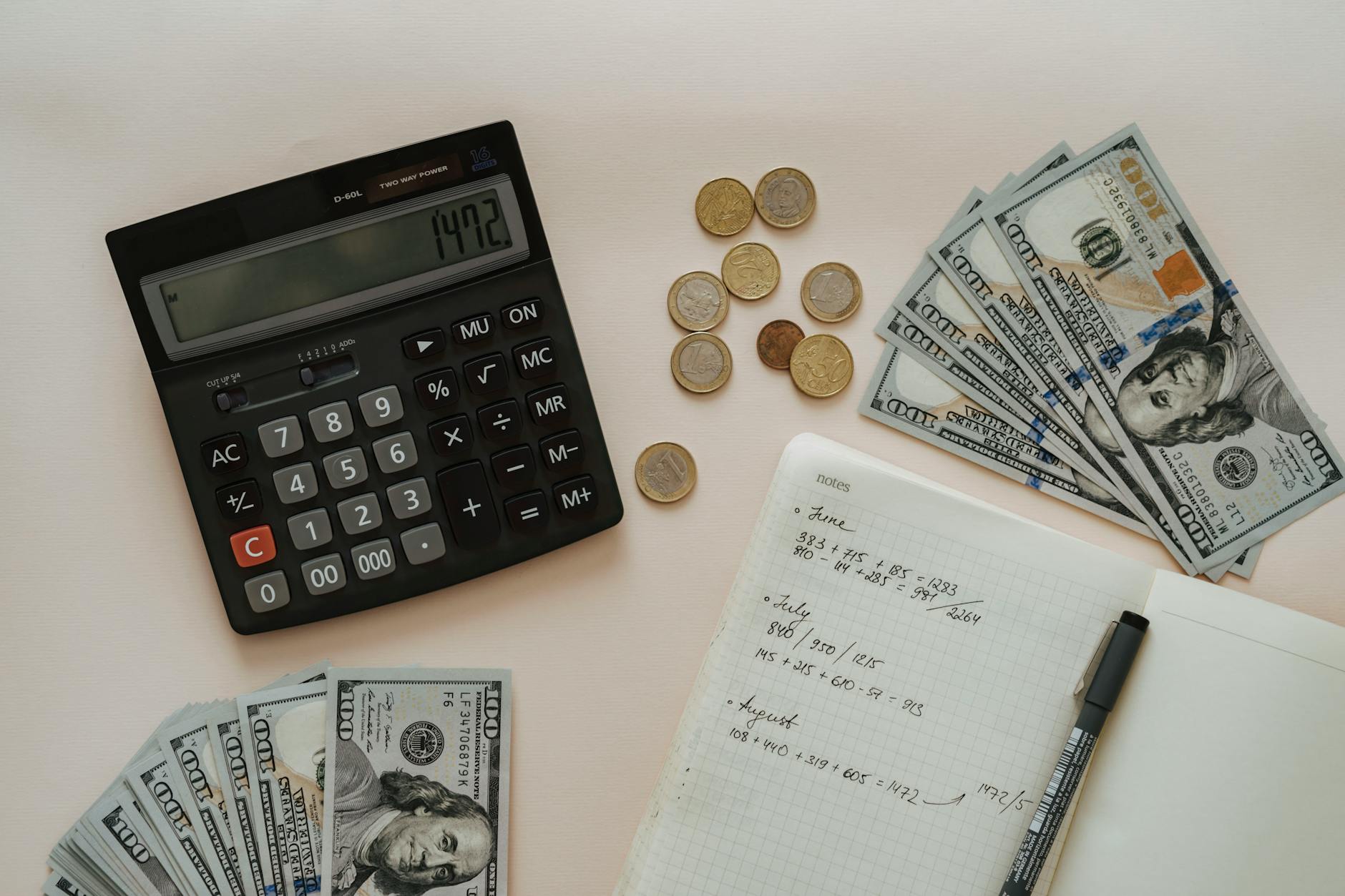Understanding PCP Car Finance
What is PCP?
PCP, or Personal Contract Purchase, is a popular form of car finance in the UK. It allows you to drive a new car for a set period, typically between two to four years, with the option of returning it or purchasing it at the end of the term. This flexible finance option splits the vehicle’s value into a deposit amount and a series of monthly payments.
How Does PCP Work?
PCP car finance operates by dividing the vehicle’s total value into three parts: the deposit, the monthly payments, and the final lump sum, often referred to as the ‘balloon payment’. Here’s how it works:
- Deposit: You pay an initial deposit, usually a percentage of the car’s value.
- Monthly Payments: You then make monthly payments over the agreed term. These payments are generally lower than other forms of car finance because they cover only a portion of the car’s value, not its full cost.
- Balloon Payment: At the end of the term, you have three options:
- Return the Car: Hand the car back to the dealer with no further obligations.
- Pay the Balloon Payment: Pay the lump sum to own the car outright (Cinch).
- Trade the Car: Use any positive equity as a deposit toward a new PCP agreement (Carwow).
PCP finance is ideal for those who prefer lower monthly payments and the flexibility to change cars frequently. For more details on comparing PCP with other finance options, visit our article on PCP vs HP.
| Component | Description |
|---|---|
| Deposit | Initial payment, a percentage of car value |
| Monthly Payments | Spread over the term, lower than HP |
| Balloon Payment | Final lump sum to own the car |
| End-of-Term Options | Return, pay, or trade the car |
For a detailed guide on calculating your PCP payments, use our PCP calculator. If you’re concerned about mis-sold PCP agreements, our PCP car finance explained article provides more insights.
Balloon Payments in PCP
Significance of Balloon Payments
In a PCP car finance deal, the balloon payment plays a crucial role. It is a significant sum that finalizes the finance term if you decide to purchase the vehicle. The balloon payment is typically substantial and optional, calculated based on the vehicle’s Guaranteed Future Value (GFV) set by the lender at the beginning of the agreement (Motorfinity).
The primary significance of balloon payments in PCP agreements includes:
- Lower Monthly Payments: Since the balloon payment is deferred to the end of the term, the monthly payments are lower compared to other financing options.
- Flexibility: At the end of the term, you have the option to pay the balloon payment and keep the car, refinance the balloon payment, enter a new contract, or return the vehicle.
- Cash Flow Management: Balloon payments allow for better cash flow management and the opportunity to invest the funds that would otherwise be tied up in higher monthly payments during the term.
Calculating Balloon Payments
The lender calculates the balloon payment at the start of the agreement based on the vehicle’s anticipated resale value at the end of the contract. This value is known as the Guaranteed Minimum Future Value (GMFV) or Residual Value (RV). The balloon payment remains fixed throughout the agreement, irrespective of fluctuations in used car values.
To calculate the balloon payment, consider the following factors:
- Make and Model: Different makes and models depreciate at different rates. Luxury cars may hold their value better than economy models.
- Expected Annual Mileage: Higher mileage typically leads to higher depreciation.
- Length of Agreement: Longer agreements may result in higher depreciation and thus a lower balloon payment.
For example, if a car is financed for £40,000 with a balloon payment set at 25%, the final payment required to keep the car at the end of the term would be £10,000 (Cinch).
| Car Value | Balloon Payment Percentage | Balloon Payment Amount |
|---|---|---|
| £40,000 | 25% | £10,000 |
| £30,000 | 20% | £6,000 |
| £20,000 | 30% | £6,000 |
The balloon payment offers the option for positive equity if the car’s value exceeds the agreed residual value at the end of the term (Cinch). This means you could potentially sell the car for more than the balloon payment, using the excess towards a new vehicle or other financial goals.
For more insights on PCP car finance and how to calculate the balloon payment, you can use our pcp calculator and explore our detailed guide on pcp car finance explained. If you are considering other financing options, check out our comparison on pcp vs hp.
PCP vs. Hire Purchase
HP vs. PCP Overview
When considering car finance options, two of the most common methods are Personal Contract Purchase (PCP) and Hire Purchase (HP). Each has its own set of benefits and drawbacks, tailored to different needs and preferences.
Hire Purchase (HP):
- With HP, you finance the entire cost of the car.
- At the end of the agreement, you become the legal owner of the car.
- Monthly payments are typically higher as you are paying off the entire vehicle’s value.
- Best suited for those who plan to keep their car long-term and prefer outright ownership.
Personal Contract Purchase (PCP):
- With PCP, you only pay off a portion of the car’s value over the finance term.
- At the end of the agreement, you have three options: make a final ‘balloon payment’ to own the car, return the car, or trade it in for a new model.
- Monthly payments are generally lower compared to HP.
- Ideal for those who like to change cars frequently and prefer lower monthly payments.
| Feature | Hire Purchase (HP) | Personal Contract Purchase (PCP) |
|---|---|---|
| Ownership | Own the car at the end | Option to own with balloon payment |
| Monthly Payments | Higher | Lower |
| Deposit | Usually 10% | Usually 10% |
| Final Payment | None | Balloon payment |
| Flexibility | Low | High |
| Best For | Long-term ownership | Frequent car changes |
Choosing Between HP and PCP
Deciding between HP and PCP largely depends on your personal preferences, financial situation, and future plans.
Choose HP if:
- You want to own the car outright at the end of the agreement.
- You prefer predictable monthly payments and no final payment.
- You plan to keep the car for a long time.
- You have predictable annual mileage.
Choose PCP if:
- You enjoy changing cars every few years.
- You want lower monthly payments.
- You prefer having flexible options at the end of the term.
- You are comfortable with the possibility of a final balloon payment if you decide to keep the car.
For a more detailed comparison and to calculate your potential payments, you can use our pcp calculator. Also, explore our articles on pcp car finance and pcp car leasing for further insights into your financing options.
Tips for PCP Car Financing
Exploring Personal Contract Purchase (PCP) car financing options can be a smart way to manage your car payments and ownership. Here are some tips to help you make informed decisions and understand your end-of-term options.
Making Informed Decisions
When considering PCP car financing, it’s crucial to evaluate your financial situation, preferences, and risk tolerance. A pcp car finance calculator can help you understand how different factors impact your payments and overall cost.
- Monthly Payments: PCP offers lower monthly payments compared to hire purchase (HP) because of the deferred balloon payment at the end of the term. Use a pcp car loan calculator to compare monthly payments.
- Balloon Payment: Assess whether you can afford the balloon payment at the end of the term (Motorfinity). If not, consider other options like trading in the car or refinancing.
- Vehicle Depreciation: Understand how the car’s depreciation affects your agreement. The car’s value at the end of the term may impact your decision on whether to keep, return, or trade it in.
- Mileage Limits: Be aware of mileage limits in your PCP agreement. Exceeding these limits can result in additional charges, so choose a plan that aligns with your driving habits.
- Interest Rates: Compare interest rates from different pcp car finance providers to find the best deal. Lower interest rates can significantly reduce your overall cost.
Understanding End-of-Term Options
At the end of your PCP agreement, you have several options to choose from (NerdWallet):
- Return the Car: You can return the car without making any further payments, provided it is in good condition and within the agreed mileage limits. This option is suitable if you don’t want to keep the car or manage a large final payment.
- Pay the Balloon Payment: If you wish to keep the car, you can pay the final balloon payment. This option might be ideal if you have saved up for this payment and prefer outright ownership.
- Trade-In for a New Car: You can trade in your current car and use any excess amount towards the deposit for a new PCP deal. This option is attractive if you like changing cars frequently and want to continue with lower monthly payments.
| End-of-Term Option | Description |
|---|---|
| Return the Car | Return the car without further payments if within agreed conditions. |
| Pay the Balloon Payment | Pay the final amount to own the car outright. |
| Trade-In | Use the car’s equity towards a new PCP agreement. |
Choosing the right option depends on your financial situation, future plans, and preferences. For more detailed comparisons, visit our articles on pcp vs hp and pcp car finance explained. Always review your pcp agreement carefully to understand all terms and conditions.


